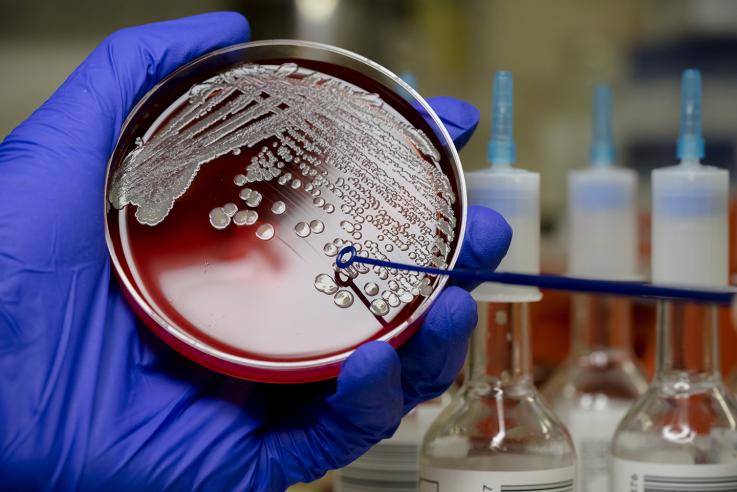The U.S. Centers for Disease Control and Prevention reports that 2 million people a year are sickened in the U.S. by bacteria or fungi resistant to major antibiotics, and that 23,000 die from them. “It's probably a vast underestimate,” says Karen Hoffmann, who heads the Association for Professionals in Infection Control and Epidemiology. “We don't have a good reporting system for multiresistant organisms, so we don't really know.” Studies suggest the cost to the U.S. health care system of treating patients with these hardy bugs tops $3 billion a year.
美國疾病控制與預防中心報告稱,美國每年有200萬人因對主要抗生素具有耐藥性的細菌或真菌而患病,其中2.3萬人因此死亡。“這可能被大大低估了,”世衛組織領導感染控制和流行病學專業人員協會會長凱倫·霍夫曼表示。“我們沒有一個很好的多耐藥性生物報告系統,所以我們真的不知道。”研究表明,美國衛生保健系統每年為治療這些頑強病菌患者的費用高達30億美元。

This grim trend is expected to accelerate. The World Health Organization predicts that worldwide death rates from drug-resistant microbes will climb from the current 700,000 per year to 10 million by 2050. At that point, they will have surpassed cancer, heart disease and diabetes to become the main cause of death in the human race. Before antibiotics, a small cut, tooth decay or routine surgery could lead to a life-threatening bacterial infection. Penicillin, the “miracle drug,” and other antibiotics changed all that, saving countless lives over the years. But the age of the miracle drug seems to be ending.
這一嚴峻的趨勢預計將加速。世界衛生組織預測,到2050年,全球耐藥微生物的死亡率將從目前的每年70萬上升到1000萬。到那時,它們將超過癌癥、心臟病和糖尿病,成為人類的主要死亡原因。在使用抗生素之前,小切口、蛀牙或常規手術都可能導致危及生命的細菌感染。盤尼西林這種“神奇的藥物”和其他抗生素改變了這一切,多年來挽救了無數人的生命。但這種神奇藥物的時代似乎即將結束。
Doctors are learning how to identify and isolate the bugs that are already resistant in the hopes of avoiding large outbreaks. They are scrambling to tighten up on the use of antibiotics in an effort to slow the development of resistant strains. It's too little, too late: The strategy will only buy us some time. At the moment, the oldest and weakest patients in hospitals are most affected, but the risks are spreading. “We're seeing healthy young people with urinary tract and skin infections that we don't have a pill for,” says Helen Boucher, an infectious disease specialist at Tufts Medical Center in Boston. “And we may not be able to perform organ transplants, and even routine surgeries like joint replacements. We should all be scared.”
醫生們正在學習如何識別和隔離已經具有抗藥性的細菌,希望能避免大規模爆發。他們正忙于收緊抗生素的使用,以減緩耐藥菌株的發展。這一策略只會為我們贏得一些時間。目前,醫院中年齡最大和最虛弱的病人受到的影響最大,但風險正在蔓延。“我們看到健康的年輕人患有泌尿道和皮膚感染,但我們沒有藥物治療,”波士頓塔夫茨醫學中心的傳染病專家海倫·鮑徹說。“我們可能無法進行器官移植,甚至無法進行像關節置換這樣的常規手術。我們都應該有危機意識。”
譯文由可可原創,僅供學習交流使用,未經許可請勿轉載。












